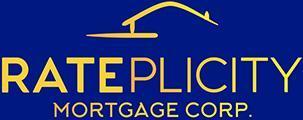Buying a Home
Modern Solutions for Modern Times
In today’s market, buying a home is the key to success. With Rateplicity, you’ve got options. If you find yourself experiencing uncertainty in the lending process, our home purchase loan program can help you close on time. Purchase loans can be structured like traditional loans or even involve the buyer taking over the seller’s mortgage. Invest in your future! We are here for every step you take.
For more details, just give us a call or click on the link that meets your needs!
Ready to Purchase a New Home? Get Started Today
There’s no time like today to get qualified. With four easy steps, one of our experienced agents can get you started. It’s important to us that we guide you through the process and structure your loan to your needs. Maybe you are tired of renting and need help to get into the market. Maybe you want to build your dream home. We can show you how this is done. Or maybe you are just looking to invest. Rateplicity will show you the way.
Our PRE-QUALIFICATION can take as little as four minutes. It’s fast, it’s FREE and it won’t affect your credit!
Rateplicity offers a mortgage SOFT PULL pre-qualification that will not impact your credit. We here are dedicated to protecting your information and figuring out the areas to build your score. A better credit profile influences your interest rate, meaning lower interest payments.

If you are not sure which loan is best for your needs, check out our selection of loan programs and reach out to start the process! Or use our mortgage calculator below to find out what your monthly payment could be.
Calculate Your Monthly Payment
Home Loans Florida FAQ
How much do you have to put down on a home loan in Florida?
The amount you’ll need to put down on a home in Florida will depend on various factors, including the purchase price of the property, your credit score, and the type of mortgage you’re applying for. In general, conventional loans typically require a down payment of at least 5% to 20% of the home’s purchase price. For example, if you’re purchasing a $300,000 home in Florida, you may need to put down between $15,000 to $60,000 as a down payment. FHA loans, which are backed by the Federal Housing Administration, may require a down payment of as little as 3.5% of the home’s purchase price. This means you may only need to put down $10,500 on a $300,000 home if you’re using an FHA loan. There are also other loan options, such as VA loans for veterans and USDA loans for those purchasing in rural areas, that may require little to no down payment. It’s important to note that a higher down payment can lead to a lower interest rate and lower monthly payments, but it’s not always feasible for everyone. It’s best to speak with a mortgage lender to determine how much you’ll need to put down based on your specific situation.
What credit score you need to buy a house in Florida?
To buy a house in Florida, you’ll typically need a good credit score. While the specific credit score requirements can vary depending on the lender and the type of loan you’re applying for, here are some general guidelines: For conventional loans, which are not backed by the government, a credit score of 620 or higher is typically required. However, to qualify for the best interest rates and terms, a credit score of 740 or higher is generally recommended. For FHA loans, which are backed by the Federal Housing Administration, you may be able to qualify with a credit score as low as 500, but you’ll likely need a score of at least 580 to qualify for the 3.5% down payment option. It’s important to note that a good credit score is not the only factor that lenders consider when approving a mortgage. Lenders will also look at your debt-to-income ratio, employment history, income, and other factors to determine your creditworthiness. If your credit score is lower than what’s required, you may still be able to qualify for a mortgage by taking steps to improve your credit. This could include paying down debt, making on-time payments, and disputing any errors on your credit report. It’s a good idea to speak with a lender or credit counselor to determine the best course of action for your individual situation.
What is the easiest home loan to get approved for?
The easiest home loan to get approved for can vary depending on your individual situation and financial history. However, here are some loan options that are generally considered to be more accessible to borrowers with less-than-perfect credit or limited financial resources:
1. FHA Loans: Backed by the Federal Housing Administration, FHA loans are designed to help low- to moderate-income borrowers with less-than-perfect credit buy a home. These loans often require a lower down payment (as little as 3.5%) and have more flexible credit score requirements compared to conventional loans.
2. VA Loans: Available to eligible military service members, veterans, and their spouses, VA loans are guaranteed by the Department of Veterans Affairs. These loans often have lower credit score requirements and no down payment requirement.
3. USDA Loans: Designed for borrowers in rural areas, USDA loans are backed by the United States Department of Agriculture. These loans often have low or no down payment requirements and more flexible credit score requirements. It’s important to note that while these loan options may be easier to qualify for, they may come with higher interest rates or additional fees. It’s always a good idea to shop around and compare loan options to find the best fit for your individual situation.
Which type of home loan is best?
This depends entirely on your situation. You may be a first time home buyer without a lot of savings. An FHA loan may be right for you. Or you might be looking to purchase a pricier property or a second home. If you need a loan higher than $726,000, a Jumbo Home Loan may be the best option for you. There are also aspects other than financial situations that Rateplicity is equipped to deal with. If you are a Foreign National, Rateplicity has loan options for you through our Foreign National Loan program. If you are veteran or currently serving, a VA loan might be best.
What do I need to qualify as a first time home buyer in Florida?
If you’re a first-time homebuyer in Florida, there are a few requirements you’ll need to meet in order to qualify for certain programs and benefits. Here are some general guidelines:
1. Credit Score: To qualify for most home loans, you’ll need a good credit score. While specific requirements can vary by lender, a credit score of 620 or higher is generally recommended.
2. Income Limits: Some first-time homebuyer programs in Florida may have income limits, which means your household income cannot exceed a certain amount. Income limits can vary depending on the program and the area in which you’re looking to buy a home.
3. First-Time Homebuyer Status: To be considered a first-time homebuyer, you must not have owned a home in the past three years. This includes any homes you may have owned jointly with a spouse or partner.
4. Homebuyer Education: Some first-time homebuyer programs in Florida may require you to complete a homebuyer education course. These courses can provide valuable information on the homebuying process and can help you make informed decisions.
5. Down Payment: While some programs offer low or no down payment options, you may need to have some money saved for a down payment. The amount required will depend on the program and the lender you’re working with. It’s important to note that requirements can vary by program and lender, so it’s a good idea to research your options and speak with a mortgage professional to determine what you’ll need to qualify as a first-time homebuyer in Florida.
What is an excellent credit score in Florida?
An excellent credit score would be above 720. However, scores from 550 to 720 are acceptable for loans but may result in higher interest rates.
What is the best loan term for first-time home buyer?
The best loan term for a first-time homebuyer will depend on your individual financial situation, long-term goals, and personal preferences. Here are some factors to consider when deciding on a loan term: Monthly Payments: A longer loan term, such as a 30-year mortgage, can result in lower monthly payments compared to a shorter loan term, such as a 15-year mortgage. This can be beneficial for first-time homebuyers who may be working with a tighter budget. Total Interest Paid: While longer loan terms may result in lower monthly payments, they can also result in paying more in interest over the life of the loan. Shorter loan terms typically have higher monthly payments but can save you money in interest over the long term. Long-Term Goals: Consider your long-term financial goals when deciding on a loan term. If you plan to stay in your home for a long time, a longer loan term may make more sense. However, if you plan to sell your home in the near future, a shorter loan term may be more appropriate. Other Financial Obligations: Consider your other financial obligations when deciding on a loan term. If you have other debt, such as student loans or credit card debt, a longer loan term may make more sense to help manage your monthly payments. Ultimately, the best loan term for a first-time homebuyer will depend on your individual circumstances. It’s a good idea to speak with a mortgage professional to discuss your options and determine what loan term makes the most sense for you.
How can I get a low mortgage rate?
There are several ways to get a low mortgage rate: Improve your credit score: A higher credit score typically leads to lower interest rates. You can improve your credit score by paying your bills on time, keeping your credit utilization low, and avoiding opening new credit accounts before applying for a mortgage. Shop around: It’s important to compare mortgage rates from different lenders to find the best deal. Get quotes from several lenders and compare their interest rates and fees. Consider a larger down payment: A larger down payment can help lower your interest rate and reduce your monthly mortgage payments. Choose a shorter loan term: A shorter loan term, such as a 15-year mortgage, typically comes with a lower interest rate than a longer loan term, such as a 30-year mortgage. Pay discount points: Discount points are fees paid to the lender in exchange for a lower interest rate. Each point is equal to 1% of the loan amount, and paying points can result in a lower interest rate and lower monthly payments. Get pre-approved: Getting pre-approved for a mortgage can show the lender that you’re a serious buyer, which may help you negotiate a lower interest rate. It’s important to keep in mind that mortgage rates can fluctuate based on market conditions, so it’s a good idea to stay informed about current mortgage rates and be prepared to act quickly if rates drop.

